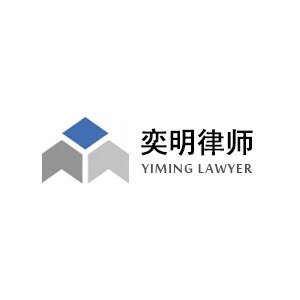Best State, Local, and Municipal Law Lawyers in China
Share your needs with us, get contacted by law firms.
Free. Takes 2 min.
Or refine your search by selecting a city:
List of the best lawyers in China
About State, Local, and Municipal Law in China
State, Local, and Municipal Law in China refers to the legal framework governing the administration and regulation of various aspects of life at the provincial, city, and municipal levels. The structure of China's legal system is hierarchical, with the national laws and regulations overseeing the broader framework, while local governments implement and enforce their adaptations for local contexts. It includes regulations related to zoning, public utilities, local taxes, urban planning, and environmental management, among others. Understanding these laws is vital for businesses operating within China and for residents navigating local regulations.
Why You May Need a Lawyer
Individuals and businesses might require legal assistance in several scenarios involving State, Local, and Municipal Law in China:
- Business Disputes: Legal support may be essential for resolving conflicts with local governments or interpreting local business regulations.
- Land Use and Zoning: Navigating the complexities of land use regulations and zoning laws can require expert legal advice, especially for real estate transactions.
- Compliance Issues: Ensuring adherence to municipal regulations, such as environmental standards or public safety requirements, might necessitate legal counsel.
- Tax Obligations: Local tax regulations can vary widely, and understanding these differences is crucial for proper compliance.
- Public Utilities: Issues related to the provision of water, electricity, or other utilities often involve municipal authorities and may benefit from legal input to resolve disputes.
Local Laws Overview
Local laws in China can differ significantly from one region to another, reflecting the distinct economic, cultural, and political factors of each area. Here are some key aspects:
- Autonomy: Local governments have certain autonomous powers to address regional needs, yet they remain under the supervision of higher governmental bodies to ensure alignment with national policies.
- Land Management: Land management is crucial in urban areas, with laws regulating zoning, leasing, and usage rights to balance development and conservation.
- Environmental Protection: Local laws often stricter regarding environmental regulations, reflecting national priorities on sustainable development and pollution control.
- Social Services: Provisions for healthcare, education, and housing are arranged at the local level, determining service levels and funding allocation.
Frequently Asked Questions
What is the relationship between national laws and local laws in China?
National laws provide the framework within which local laws operate. Local laws must align with national laws and are adapted to address the specific needs of each region.
How do local governments in China exercise their authority?
Local governments exercise authority through the issuance of local regulations, managing public services, and implementing national policies tailored to their region's conditions.
What are the common disputes involving local law?
Common disputes often involve land use conflicts, compliance with environmental regulations, taxation issues, and contractual disagreements with locality-based entities.
How are zoning laws typically enforced in China?
Zoning laws are enforced through planning permits and oversight by municipal bodies, ensuring that land development aligns with the city's master plan and environmental standards.
Who governs municipal utility services?
Municipal utility services are managed at the local government level, with regulations governing pricing, delivery, and service quality to ensure public access and infrastructure reliability.
Are local tax rates different across China?
Yes, tax rates can vary significantly depending on the region, reflecting the local economic conditions and policy objectives set by local administrations.
What role do municipal governments play in business regulation?
Municipal governments play a crucial role in licensing businesses, enforcing local business regulations, and supporting regional economic development strategies.
Can local governments issue laws independently?
Local governments have the power to issue laws, but these must not conflict with national laws, and they are often subject to oversight from higher governmental authorities.
What should I do if I believe a local law is unfairly affecting me?
Consulting with a legal expert specializing in local law is advisable to explore potential legal remedies, or dispute resolution options, and to understand your rights and obligations.
How are environmental issues addressed by local governments?
Local governments actively address environmental issues by enforcing regulations on pollution control, waste management, and conservation efforts, often with stricter local standards than the national baseline.
Additional Resources
- Ministry of Justice of the People's Republic of China: Provides comprehensive information on legal services and regulations.
- Local Government Portals: Many cities have official websites that detail their specific regulations and services.
- Legal Aid Centers: Offer assistance for individuals seeking legal advice, often at low or no cost.
- Chinese Law Societies: Professional associations that can provide referrals and resources for finding qualified legal practitioners.
Next Steps
If you need legal assistance in the field of State, Local, and Municipal Law in China, consider the following steps:
- Consult with Experts: Reach out to a lawyer who specializes in local law to better understand your situation.
- Gather Information: Collect all relevant documents and evidence related to your legal issue to bring to your consultation.
- Visit Local Government Offices: When appropriate, visiting the local government office may provide clarity and official information pertinent to your issue.
- Research: Utilize the resources listed above to familiarize yourself with applicable laws and regulations.
Lastly, ensure you comply with all legal requirements and procedures while engaging in any legal action or negotiations.
Lawzana helps you find the best lawyers and law firms in China through a curated and pre-screened list of qualified legal professionals. Our platform offers rankings and detailed profiles of attorneys and law firms, allowing you to compare based on practice areas, including State, Local, and Municipal Law, experience, and client feedback.
Each profile includes a description of the firm's areas of practice, client reviews, team members and partners, year of establishment, spoken languages, office locations, contact information, social media presence, and any published articles or resources. Most firms on our platform speak English and are experienced in both local and international legal matters.
Get a quote from top-rated law firms in China — quickly, securely, and without unnecessary hassle.
Disclaimer:
The information provided on this page is for general informational purposes only and does not constitute legal advice. While we strive to ensure the accuracy and relevance of the content, legal information may change over time, and interpretations of the law can vary. You should always consult with a qualified legal professional for advice specific to your situation.
We disclaim all liability for actions taken or not taken based on the content of this page. If you believe any information is incorrect or outdated, please contact us, and we will review and update it where appropriate.
Browse state, local, and municipal law law firms by city in China
Refine your search by selecting a city.












